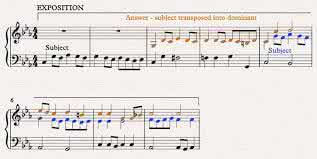fugue
US /fjuːɡ/
UK /fjuːɡ/

명사
1.
푸가
a contrapuntal compositional technique in two or more voices, built on a subject (theme) that is introduced at the beginning in imitation and which recurs frequently in the course of the composition.
예시:
•
Bach's 'Toccata and Fugue in D minor' is a masterpiece of classical music.
바흐의 '토카타와 푸가 라단조'는 고전 음악의 걸작이다.
•
The composer skillfully wove multiple melodic lines into a complex fugue.
작곡가는 여러 멜로디 라인을 복잡한 푸가로 능숙하게 엮었다.
2.
푸가, 해리성 둔주
a state or period of loss of awareness of one's identity, often coupled with flight from one's usual environment, associated with certain forms of hysteria and epilepsy.
예시:
•
After the traumatic event, the patient experienced a dissociative fugue, wandering far from home.
충격적인 사건 후, 환자는 해리성 푸가를 겪으며 집에서 멀리 떨어진 곳을 방황했다.
•
The doctor diagnosed him with a psychological fugue state.
의사는 그에게 심리적 푸가 상태를 진단했다.
Lingoland에서 이 단어 학습하기